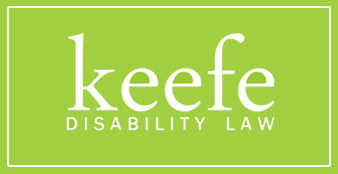 The doctor has given you a diagnosis. You have non-Hodgkin’s lymphoma, and you must begin treatment. Immediately, you may start to think about how this diagnosis is going to impact you, your daily activities, and your family. Non-Hodgkin’s lymphoma affects different people in different ways, but there are some things that you should expect after you are diagnosed.
The doctor has given you a diagnosis. You have non-Hodgkin’s lymphoma, and you must begin treatment. Immediately, you may start to think about how this diagnosis is going to impact you, your daily activities, and your family. Non-Hodgkin’s lymphoma affects different people in different ways, but there are some things that you should expect after you are diagnosed.
Medical Treatments for Non-Hodgkin’s Lymphoma
You will have choices to make when it comes to your non-Hodgkin’s lymphoma treatment. Before you make a decision, it is important to talk about the stage of your cancer, your overall health, and your personal preferences with your doctor. In some cases, treatment may include:
- Frequent monitoring, but no active treatment. Sometimes non-Hodgkin’s lymphoma progresses very slowly. In these cases, doctors sometimes recommend frequent monitoring to make sure the cancer isn’t getting worse, but they do not recommend cancer treatment.
- Chemotherapy. Your doctor may prescribe oral chemotherapy or chemotherapy by injection. Since there are different chemotherapy options for the treatment of non-Hodgkin’s lymphoma, it is essential to discuss all of the potential side effects from each medication with your doctor so that you can make an informed decision about your treatment opinions.
- Radiation. Radiation may be the only course of treatment, or it may be used together with other cancer treatments. You may need radiation treatment every day for several weeks. There are short-term side effects, such as fatigue, and long-term side effects, such as heart problems, stroke, and other forms of cancer that can be caused by radiation.
- Bone marrow transplants. Before healthy bone marrow can be transplanted in your body, your own bone marrow must be suppressed through chemotherapy and radiation.
Other treatments, such as other medications and clinical trials, may also be suggested for you.
Work and Activities After Your Diagnosis
Both your non-Hodgkin’s lymphoma diagnosis and your cancer treatments may significantly impact your life. Everyday activities, such as preparing meals, cleaning, shopping, and even showering may become difficult. Working or attending school may be challenging. Special events such as weddings, birthdays, and other celebrations may become impossible.
You can’t live your life the way that you did before you got sick, and you are experiencing significant losses because of it. Your independence, your livelihood, your confidence, and even your happiness may suffer. To cope with these difficulties, it is important to:
- Talk to your doctor about how to manage your cancer and side effects from cancer treatment
- Talk to your employer about modifications that may be made to allow you to continue working
- Talk to your family and close friends about how they can help you
- Find a support group and talk to other people with non-Hodgkin’s lymphoma about strategies that work for them
Even if your activities are restricted, you can adjust your goals and do your best to stay active.
Consider Legal Action if You’ve Been Exposed to Roundup®
Sometimes, non-Hodgkin’s lymphoma happens for unknown reasons. However, sometimes, the diagnosis can be directly connected to exposure to a specific substance. For some people with non-Hodgkin’s lymphoma, Roundup® weed killer is the substance that caused their cancer.
More than four years ago, the World Health Organization found that glyphosate, the primary ingredient in Roundup®, was probably carcinogenic to humans. Since then, the United States government has not taken any action to limit the public’s exposure to glyphosate.
Several Roundup cases have gone to trial, and juries have returned large verdicts for people who developed non-Hodgkin’s lymphoma due to Roundup exposure. These verdicts include compensation for past and future medical costs, lost income, out-of-pocket costs, physical pain, emotional suffering, and punitive damages.
Filing legal action may not be top on your list of things to do after a cancer diagnosis, but a lawsuit could protect potential financial recovery and send a warning to companies that they need to develop reasonably safe products or pay the price.
Our mass tort lawyers will take the burden of pursuing legal action off of your shoulders. If you hire us, then we will act on your behalf and work hard to get you the fair recovery that you deserve. We will only be paid if we get money for you in a settlement or in court. Therefore, you have nothing to lose and much to gain by contacting us for a free consultation today.
Are You Looking for a Social Security Disability Attorney in Boston, MA?
If you are looking to apply for social security disability, you need to speak with an experienced social security disability lawyer as soon as possible. Please contact us online or call our Natick Office directly at 888.904.6847 to schedule your free consultation.
|
Related Links: |


